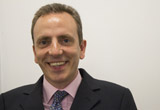 A 60 year old woman goes to her doctor with dizziness and poor balance. Her doctor is not sure what is wrong but thinks about postural hypotension, Meniere’s disease, and benign positional paroxysmal vertigo. He examines her and orders tests with these differentials in mind. But he cannot find anything on physical examination and all the tests come back negative. He tells the patient that he cannot find a physical cause for her poor balance and suggests physiotherapy. A year later the symptoms have got worse and the patient asks for a second opinion. She is eventually diagnosed with multiple sclerosis. She is not happy and wonders why she couldn’t have been diagnosed earlier.
A 60 year old woman goes to her doctor with dizziness and poor balance. Her doctor is not sure what is wrong but thinks about postural hypotension, Meniere’s disease, and benign positional paroxysmal vertigo. He examines her and orders tests with these differentials in mind. But he cannot find anything on physical examination and all the tests come back negative. He tells the patient that he cannot find a physical cause for her poor balance and suggests physiotherapy. A year later the symptoms have got worse and the patient asks for a second opinion. She is eventually diagnosed with multiple sclerosis. She is not happy and wonders why she couldn’t have been diagnosed earlier.
So why couldn’t she have been diagnosed earlier? One possibility is that her doctor was “satisficed” with the differential diagnosis too quickly. Satisficing is a portmanteau of satisfy and suffice. It means that when you make a decision, you think through alternatives until you decide that you have done an acceptable job. And then you stop. But the problem is that the threshold for acceptability is subjective, and many people are “satisficed” too soon.
There is another problem. There doesn’t seem to be much that you can do about “satisficing.” Sherbino and colleagues taught medical students cognitive forcing strategies to help them overcome satisficing and other biases in their diagnostic reasoning (1). But it didn’t work—the medical students who received the training were no better at diagnosing than controls.
But there may be another way forward. Diagnostic decisions are also limited by the working memory of the doctor as well as the complexity of the problem. The problem with memory is that it frequently fails. I used to work in neurology and can still come up with 10 causes of dizziness—pretty quickly and from the top of my head. But when I search dizziness in a clinical decision support tool, I find 40 differentials. Some are common and some rare but all are potential causes. Reading the list jogs my memory and reminds me of patients I have seen in the past with these diagnoses—even someone with a tumour in the posterior fossa. The tool also suggests further tests to do when the initial ones come up blank. Which would have been helpful in the patient with dizziness.
Clinical decision support at the point of care seems like the way forward to improve diagnostic decision making. There is nothing new in the thinking behind it—over 2000 years ago Cicero wrote “any man may make a mistake; none but a fool will stick to it. Second thoughts are best as the proverb says.” (2) However the problem lies in encouraging sufficient numbers of these second thoughts. Too often doctors still rely on memory and the culture of medicine and medical education encourages this. For example most exams in medicine are still closed-book exams and so force learners to learn a tremendous amount of knowledge by heart. But this is no longer the real world. Today learners have constant access to a range of evidence-based, practical, and continually updated knowledge on their mobile. If they are out of range there is always wifi. If no wifi, there is often an app. Occasionally in medicine there is literally no time to look things up and you have to know what to do immediately—for example in cardiopulmonary resuscitation. But in most other emergencies, there is time to check things. There just needs to be the will and the right culture and environment.
Which leads to another potential problem. The doctor who doesn’t like looking things up (in front of patients or colleagues). But that is for another day and another blog.
References:
- Sherbino J, Kulasegaram K, Howey E, Norman G. Ineffectiveness of cognitive forcing strategies to reduce biases in diagnostic reasoning: a controlled trial. CJEM.2014 Jan;16(1):34-40.
- Philippicæ. XII. 2.
Competing interests: KW works for BMJ, which produces BMJ Best Practice—an evidence-based clinical decision support tool.
Kieran Walsh is clinical director of BMJ Learning and BMJ Best Practice. He is responsible for the editorial quality of both products. He has worked in the past as a hospital doctor—specialising in care of the elderly medicine and neurology.
